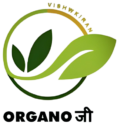Introduction:
In a world where health-conscious choices are gaining prominence, the demand for organic products is skyrocketing. Consumers are increasingly drawn towards a lifestyle that prioritizes not just personal well-being but also the sustainability of our planet. This blog delves into the realm of organic products, exploring the reasons behind their popularity, their benefits, and the positive impact they can have on both individual health and the environment.
Defining Organic Products:
Organic products encompass a wide array of goods, ranging from food and beverages to skincare and textiles. What sets these products apart is their adherence to a set of principles that prioritize natural processes, eschewing synthetic chemicals and genetically modified organisms.
- Organic Food: At the heart of the organic movement is organic food, grown without synthetic pesticides, herbicides, or genetically modified organisms. Organic farmers follow sustainable practices, promoting soil health, biodiversity, and ethical animal treatment.
- Organic Skincare: Organic skincare products are crafted from natural ingredients, avoiding the harsh chemicals often found in conventional beauty products. These items prioritize gentle, plant-based formulations that nourish the skin without compromising health.
- Organic Textiles: Organic textiles, including clothing and linens, are made from fibers cultivated without synthetic pesticides or fertilizers. This ensures that the fabrics are not only free from harmful residues but also contribute to sustainable agricultural practices.
The Benefits of Choosing Organic:
- Healthier Living: Consuming organic products reduces exposure to potentially harmful chemicals present in conventional items. Studies suggest that organic food may have higher nutrient levels and lower pesticide residues, contributing to better overall health.
- Environmental Conservation: Organic farming methods promote soil health, water conservation, and biodiversity. By choosing organic, consumers actively support agricultural practices that reduce the environmental impact associated with conventional agriculture.
- Ethical Animal Treatment: Organic farming practices extend to livestock, emphasizing humane treatment. Animals raised organically are given access to outdoor spaces, fed organic feed, and are spared the use of growth hormones and antibiotics.
- Sustainable Fashion: Organic textiles contribute to sustainable and ethical fashion. By choosing organic clothing, consumers align their wardrobe choices with eco-friendly practices, supporting a supply chain that prioritizes both people and the planet.
Navigating the Organic Landscape:
While the benefits of organic products are evident, it’s crucial for consumers to navigate the market with awareness. Look for reputable certifications such as USDA Organic or the European Union’s Organic Certification to ensure that the products meet stringent organic standards.
Conclusion:
The organic revolution goes beyond a mere consumer trend; it represents a shift towards a more conscious and sustainable way of living. Choosing organic products is not just a personal choice; it’s an investment in the well-being of our planet. As we continue to witness the growth of the organic movement, let’s celebrate the nourishing power of organic products — a testament to the harmonious relationship between nature and human well-being. By embracing the organic lifestyle, we embark on a journey towards a healthier, more sustainable future for generations to come.

